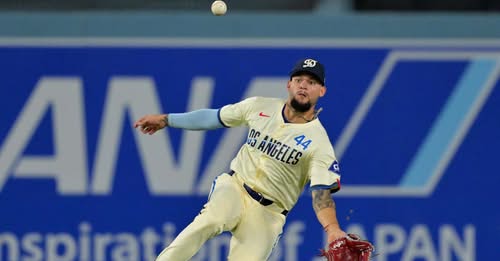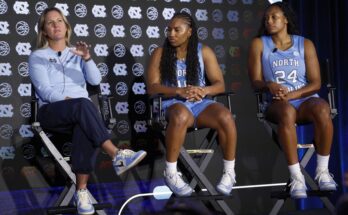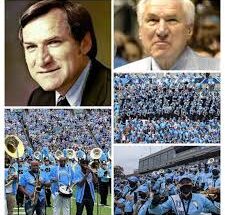The Los Angeles Dodgers and Baltimore Orioles squared off in a game that will be remembered for far more than just the final score. At the center of the drama was Dodgers pitcher Yoshinobu Yamamoto, who carried a no-hitter deep into the ninth inning and seemed destined to etch his name into history. What should have been a defining moment for the Japanese star instead became clouded with controversy, as Dodgers rookie outfielder Andy Pages was singled out by Orioles broadcasters for a perceived lack of effort on a crucial play in the final inning. The remarks sparked debate not only about Pages’ performance but also about the role teammates play in preserving individual milestones such as no-hitters.
Yamamoto had been brilliant from the first pitch, showcasing his trademark precision, mixing his repertoire of fastballs, splitters, and curveballs to keep Orioles hitters off balance all night long. His command was impeccable, and as the innings ticked by, the anticipation built inside Dodger Stadium and across the baseball world. Every fan in the building knew they were watching something special. No-hitters are among the rarest feats in baseball, and Yamamoto, in only his first year in the Major Leagues after arriving from Japan, had a chance to accomplish something that would solidify his place in Dodgers lore instantly.
The drama intensified as Yamamoto stepped onto the mound in the top of the ninth inning, just three outs away from immortality. The crowd was on its feet, buzzing with nervous energy, every pitch drawing gasps and cheers. The first batter went down, and then the second. Suddenly, Yamamoto was one out away from the elusive no-hitter. That’s when the moment of controversy arrived. With two outs, an Orioles batter hit a sharp but catchable line drive to right-center field. Andy Pages broke toward the ball but did not seem to commit fully to the play. The ball dropped just out of his reach for a clean base hit, shattering Yamamoto’s bid for a no-hitter.
Almost immediately, Orioles broadcasters on the television feed began criticizing Pages. They pointed out his hesitation on the read, his route to the ball, and most importantly, the lack of a full-out diving effort. From their perspective, Pages had not shown the urgency or commitment required in such a high-stakes situation. “You have to leave everything on the line in that spot,” one broadcaster remarked, suggesting that Pages should have risked his body to make the catch and preserve Yamamoto’s no-hit bid. The broadcasters’ comments were direct and unflinching, framing the rookie’s effort as insufficient for the gravity of the moment.
The reaction ignited immediate conversation among fans and analysts. Some agreed with the broadcasters, saying that any outfielder, especially in a moment as historic as a no-hitter, should go all out, even if it meant crashing to the ground or risking injury. Baseball, after all, is a sport where legends are made not only by skill but by effort, hustle, and a willingness to sacrifice for the team and for history. In their view, Pages’ decision not to dive looked passive, almost as if he didn’t understand the weight of what was at stake.
Others, however, came to Pages’ defense. They argued that the ball was hit too cleanly for a realistic diving catch, and that asking a young player to risk injury for a play that might not have been made regardless was unreasonable. Pages has been valued by the Dodgers for his developing bat and his strong defensive potential, and putting his health in jeopardy for a single out in September, they said, was not worth the cost. To this camp, the broadcasters were unfair in singling him out, especially since Yamamoto’s no-hitter, while historic, was ultimately an individual accolade. The Dodgers as an organization need Pages for the long haul, not just one moment of glory.
The controversy touched on a deeper truth about baseball: the line between individual accomplishment and team success can often blur. No-hitters are celebrated as much by teammates as by the pitcher, with every player on the field aware of their responsibility to help secure the achievement. Great defensive plays are often the deciding factor in whether a no-hitter survives. Fans still recall the jaw-dropping catches that have preserved no-hitters in the past, and the effort of fielders is usually remembered as vividly as the pitcher’s dominance. For that reason, Pages’ play stood out even more—because it lacked the spectacular, all-out effort that often defines those moments.
Within the Dodgers’ clubhouse, the response was noticeably calmer. Yamamoto himself, known for his quiet, professional demeanor, downplayed the moment. He expressed disappointment in losing the no-hitter but emphasized his satisfaction with the win and with how well he pitched. His focus was on the bigger picture: team victories, playoff positioning, and his continued adjustment to the Major League game. He did not criticize Pages, instead showing the composure and maturity that has made him a star on both sides of the Pacific. Teammates echoed his sentiment, noting that baseball is unpredictable and that no single play should define a player’s character or effort.
Nevertheless, the incident has raised questions about Pages’ development and readiness for the spotlight in Los Angeles. As a young player on a storied franchise with championship expectations, every action is magnified. Dodgers fans expect hustle, grit, and awareness, especially when history is on the line. The fact that broadcasters from the opposing team were the ones calling out his effort only added fuel to the fire. For Pages, this moment could become either a blemish that haunts him or a learning experience that propels him forward.
From a strategic perspective, it is also worth noting the dynamics of outfield defense. Reading line drives is one of the hardest plays in baseball, particularly for a rookie still adjusting to Major League speed and ball flight. Outfielders must instantly decide whether to commit to a dive or to play the ball on a hop, with only fractions of a second to react. A mistimed dive can lead to the ball skipping past for extra bases, potentially costing the team a run in a close game. Pages may have opted for the safer play, prioritizing keeping the runner at first rather than risking a game-tying situation with a misjudged dive. That calculation, while sound in a normal game situation, clashed with the extraordinary stakes of a no-hitter.
The fanbase itself appeared split after the game. On social media, Dodgers supporters voiced both frustration and understanding. Some posted clips of iconic defensive saves in past no-hitters, arguing that true Dodgers legends like Yasiel Puig or Andre Ethier would have laid out for the ball. Others reminded critics that Pages is still learning and should not be scapegoated for what was ultimately an outstanding team win. The discourse highlighted how deeply fans value milestones like no-hitters, which, while not essential to a team’s success, hold symbolic weight as moments of baseball immortality.
As for Yamamoto, his outing remains one of the most dominant performances of the season. Even without the no-hitter, striking out double-digit batters and holding one of the American League’s most potent lineups hitless for nearly nine innings is a testament to his skill and poise. His transition to Major League Baseball has been closely followed, and this game further cements his reputation as an ace capable of leading the Dodgers into October. Though he fell just short of joining the exclusive list of pitchers with no-hitters, his composure in the aftermath may have won him just as much respect.
Looking ahead, the incident could serve as a pivotal point in Andy Pages’ career. Players often grow from moments of criticism, learning to rise to the occasion when the spotlight burns brightest. The Dodgers coaching staff will likely frame the play as a teaching moment rather than a failure, emphasizing the importance of situational awareness and effort without piling undue pressure on a young player. For Pages, proving his dedication and resilience in the weeks ahead may silence critics and redefine his narrative.
In the end, the night belonged to Yamamoto, whose near-no-hitter showcased why the Dodgers invested so heavily in him. Yet it also underscored how much of baseball history hinges not only on individual brilliance but also on the collective effort of teammates. The Orioles broadcasters’ critique of Pages touched a nerve precisely because fans know that great moments are built on extraordinary effort from every corner of the field. Whether Pages erred in judgment or simply fell victim to an impossible situation will remain a matter of debate. What is certain is that his name will be attached to one of the most memorable games of the Dodgers’ season, a reminder that in baseball, the line between hero and scapegoat can be decided in a single heartbeat.



